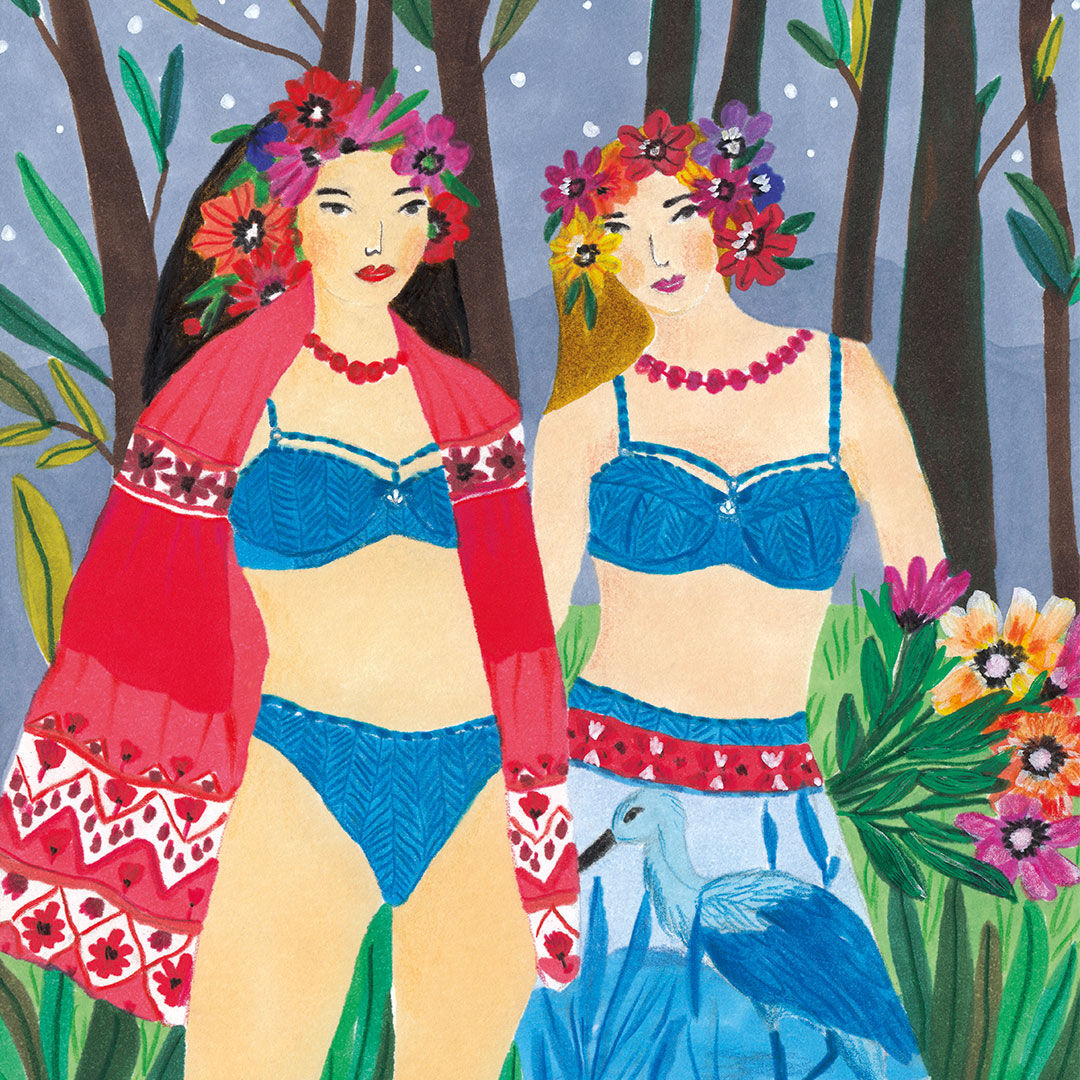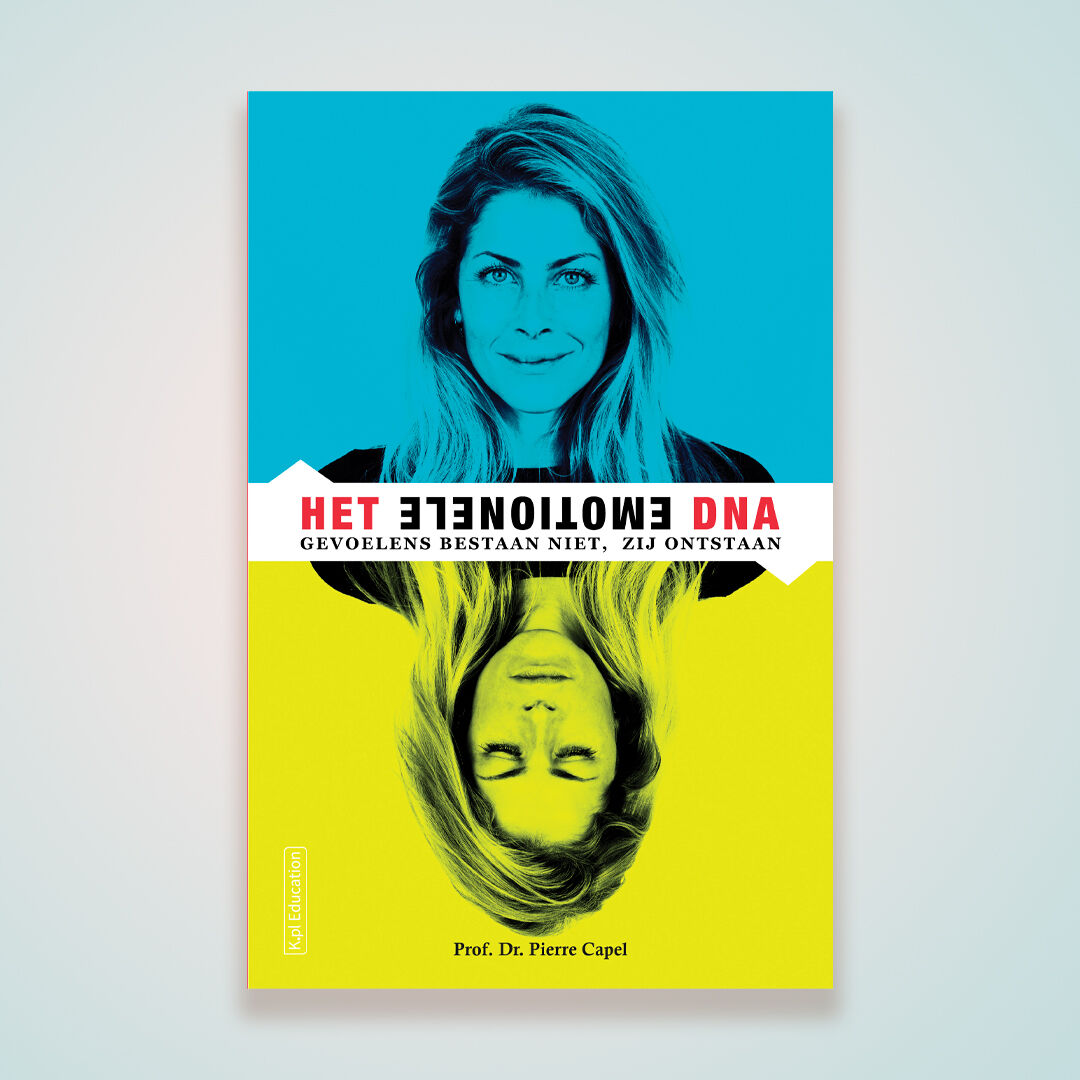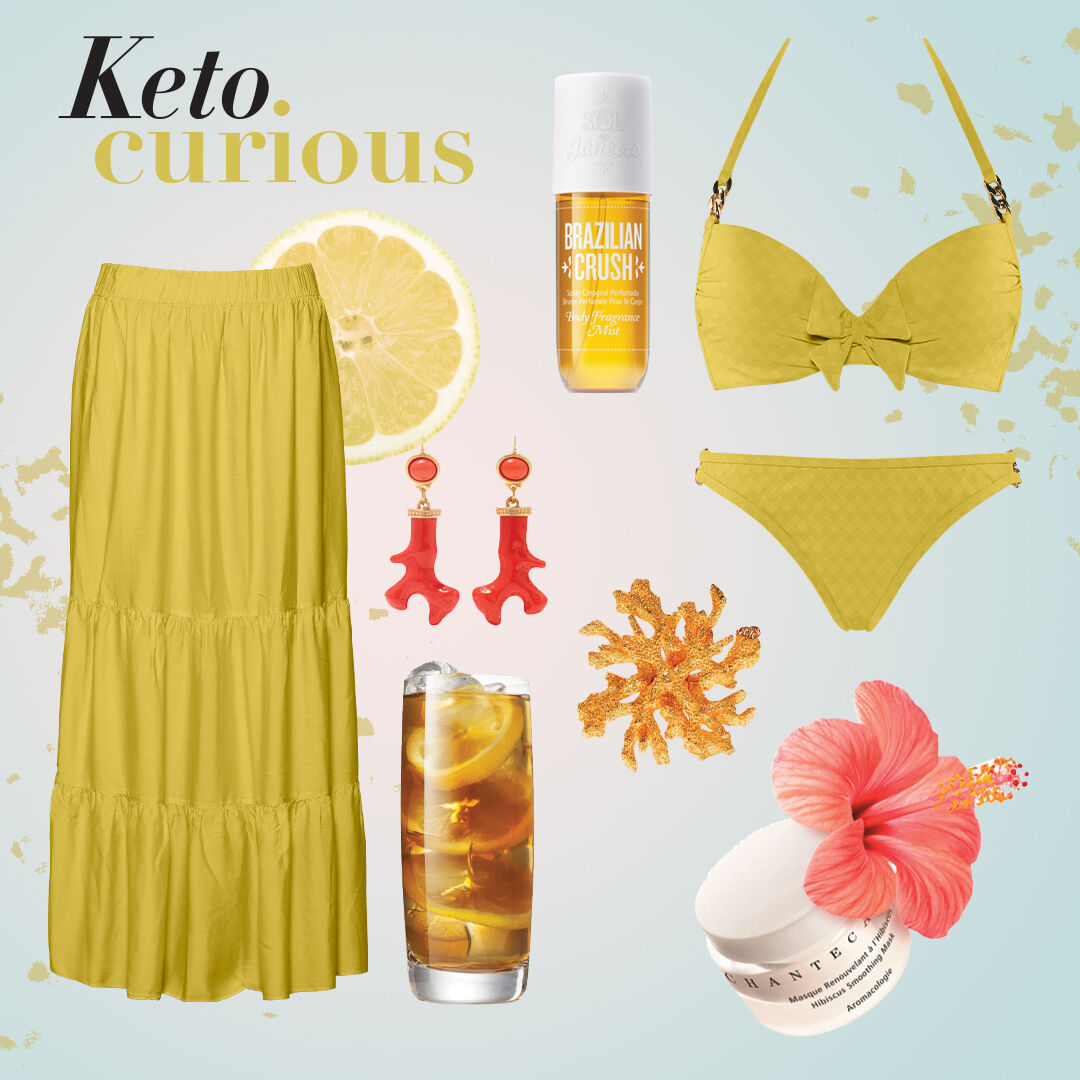Goddess Kupala
The story of Kupala, the Slavic goddess of summer solstice, is an ironic love story. How else to call a love tragedy that has been inspiring a wild annual celebration of love and sensuality for as long as people in Russia and Eastern Europe can remember?
It all started when Kupala, daughter of Simargl, the god of fire, and Kupalnitsa, goddess of the night, had made a beautiful wreath for herself out of ferns and wildflowers. Strutting along the river Ra, happy with herself and her swag, she boasted: „No wind can blow my wreath off my head!“. Oops, there it went, straight into the river, where it was found by a handsome young man who was now, according to Slavic custom, obliged to marry her. Luckily, they fell in love, but guess what? Kupala’s husband turned out to be her brother! (Such a great telenovela plot twist this would make). Deeply ashamed, they killed themselves; Kupala by drowning herself in a lake, her brother by jumping into the fire. The gods, feeling sorry for them, turned the lovers into flowers
Once a year, during summer solstice, Kupala comes to life. Garlanded with ferns, smelling of flowers and fresh summer dew, the goddess rises to give hopeful lovers the happy ending she herself never had. Women make colorful (and very Instagram–worthy) wreaths to wear and float in the river with candles, visualizing their hopes and dreams for the coming year. Love matches are made when a prospective lover catches a garland, but things really heat up when people head into the woods, looking for the Fire–Flower of Kupala, a mythical fern that flowers only on this night. In the days before birth control, the results of this steamy night would be justified nine months later by saying that storks had delivered a new batch of babies to the village. The perfect excuse, since storks return to Europe from Africa about nine months after the summer solstice!
But all storks and folklore aside, goddess Kupala is a powerful symbol of purification – her name literally meaning ‚to bathe‘ – and new beginnings. Like the formidable Cher, she reminds us that there is ‚ love after love‘. „Shake off the dust, have a bath and try again,“ Kupala tells us each time we fall. Want to make a new start? You don’t have to wait till summer solstice. Just leave a cloth outside to gather dew. When you wipe your face with it the next morning, call on Kupala. Listen closely, and you may hear her whisper in your ear: „It’s never too late!“
MD Friends
Building bridges
From the Erasmus Bridge and the Mercedes-Benz Museum to Qatar’s metro network; Ben van Berkel’s iconic landmarks bring people together in rapturous beauty, again and again. I talked with the Dutch architect and educator about sensuality, ‘healthy’ buildings and the remarkable parallels between our designs.
MD Friends
More than a feeling
Don’t ignore your emotions; they are much more powerful than you can imagine. By linking the magical world of emotions with hard science, Dutch scientist Pierre Capel, professor emeritus in experimental immunology, shows us the consequences of our feelings and the power of our minds. The message: we can do much more than we think. “Meditate. It’s the single best thing you can do for your health.”
Marlies Says
Keto curious?
The fact that I feel bikini-confident all year round is, of course, a nice bonus. But for me, the biggest payoff of following the keto diet is the way it optimizes my health and gives me tons of energy.
Marlies Says
Super (skin) food
‘If you can’t eat it, why put it on your skin?’. I pretty much live by this beauty adage. After all, with your skin being one of your body’s largest organs, anything – and I mean anything! – you put onto your skin will end up in your bloodstream.











